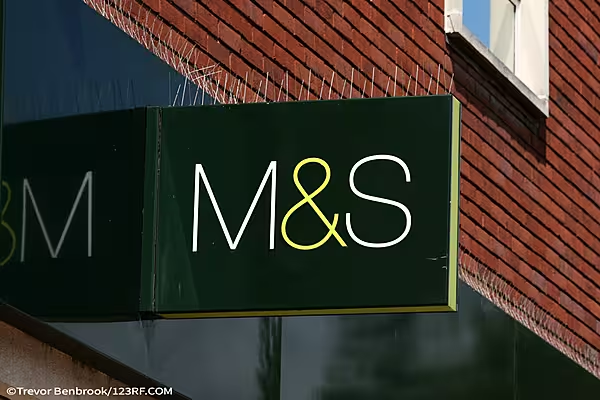A desire by British shoppers to celebrate Christmas at home spurred Tesco and Marks & Spencer to the top of the festive retail pile, with demand for premium food, wine and champagne helping both to upgrade profit forecasts.
The rapid spread of the Omicron coronavirus variant in the weeks running up to Christmas left many pubs and restaurants deserted, as shoppers turned instead to the supermarket aisles to entertain smaller groups at home.
Champagne Sales
While the country's biggest supermarket Tesco sold more than 8 million bottles of champagne and sparkling wine, pubs group Mitchells & Butlers said their sales fell 10.2% in the four weeks over Christmas compared with pre-pandemic trading.
There was also pressure on the fast-fashion front, with one-time stock market darling ASOS reporting that its sales, while in line with downgraded forecasts, had been limited by demand volatility and supply chain constraints.
Labour Shortages
Tesco boss Ken Murphy said the group had invested more to guarantee delivery at a time when Omicron-sparked labour shortages and higher freight costs have hit deliveries.
"This put us in a strong position to meet customers' needs as, once again, COVID-19 led to a greater focus on celebrating at home," he said.
M&S, Britain's most famous stores group which is recovering from a decade of decline, said food sales increased 12.4% against its pre-pandemic performance two years ago in the 13 weeks to 1 January, while clothing and home sales rose 3.2%. Both were better than expected.
Tougher Times Ahead
British clothing retailer Next set the tone for the festive reporting season when it published results last week showing that consumer demand had been much stronger than expected.
Since then supermarkets, sportswear groups and furniture sellers have reported strong Christmas sales, however they nearly all caution that 2022 will be tough when British consumers are expected to be clobbered by a rise in energy costs, taxes and general inflation.
Next and ASOS warned that they had introduced some price rises to counter surging cost inflation from wage rises, freight and manufacturing. German discount supermarkets Aldi and Lidl have said they will continue to maintain the lowest prices, keeping the pressure up on the sector.
Official economic surveys show that consumer spending held up well to the end of December, but even though some Britons conserved cash while working from home, they are expected to rein in spending in 2022 as the cost of living jumps.
Shares in Tesco and M&S both slipped in early trading, as they had been expected to upgrade forecasts. Shares in ASOS were up 6% after it said it would move to the main stock market listing, broadening its possible shareholder base.
News by Reuters edited by Donna Ahern Checkout. For more Retail stories click here. Click subscribe to sign up for the Checkout print edition.





